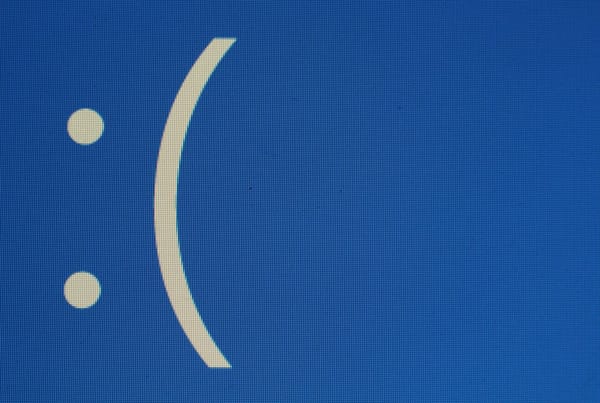How Selling My Startup Led Me to Take a Vow of Middle Class Poverty
This guest post was written by Michael de la Maza. Michael was a member of the founding team of Inquira (acquired by Oracle) and a VP of Corporate Strategy at Softricity (acquired by Microsoft). He holds a PhD in Computer Science from MIT and is the author of Rapid Chess Improvement and co-author of Professional Scrum with Team Foundation Server 2010.
I. Down
I started by starting startups – half a dozen of them over the course of almost a decade.
I was close to getting the brass ring on at least three occasions. I once had a legally binding letter of intent to sell a startup when 9/11 happened. On that day, the founder and I were crossing Harvard Bridge in Cambridge, Massachusetts on our way to the airport to take a plane to Washington D.C. to talk to a Fortune 500 CEO. The conversation never happened and the company was shut down.
There were many other misses. A sweet deal to sell trading signals to a hedge fund that went on year after year until the hedge fund decided to invest a big chunk of its assets in a manager who blew up, taking the hedge fund down with it. A six month stint as a consultant at a company that was acquired, me not trying to stick with it because I was not smart enough to figure out that the company had a brilliant CEO, CTO, and EVP of Marketing.
I had so much bad luck that I had to call an extreme version of Radoff’s rule on myself: If someone is consistently unlucky, consider the possibility that they have a character flaw or are incompetent.
The low was very low. Getting fired from one job, laid off from another. Standing in the unemployment line. My doctor telling me that I might be depressed and should see a therapist. A Wikipedia entry which focuses on chess, not on startups, and is about to be removed because I do not meet Wikipedia' notability guidelines.
After the dotcom crash, I nursed my psyche and hibernated as a civil servant, a research scientist, and a contractor in the defense industry and then, in 2009, I became an agile lean consultant, moving from company to company every 3-6 months.
Then, in July 2011, I received a call from the CEO of Inquira, a company that I helped start, telling me that it had been acquired by Oracle.
II. Up
I experienced something akin to an extended runner’s high. My body felt soft and cloudy. I suspect that oceans of endorphins were swimming through me.
Here were my stream-of-consciousness thoughts in the few hours after I learned of the exit:
Self worth = net worth. If you are so smart, why aren’t you rich? Intense sense of shame and embarrassment that money matters so much. Realizing that 80%+ of my waking hours are spent making money or thinking about making money. Even more humiliation, shame, and blame when I realize that now that I do not need to make more money, I do not know what to do with myself. Surprised that without the need to make money, I may be nothing.
Fear. Fear that I do not know what to do with the money. How to spend it, keep it, save it, invest it. Recalling reading Felix Dennis’ How to Get Rich, where the author, the creator of Maxim, says that whenever a man makes serious money for the first time he can’t help but blow a chunk of it on women.
Women. Endless rivers of women, all attracted to the Benjamins. Teeming, voluptuous women, dreaming of my tumescence. Finally understanding how Patti Stanger and Karma work.
Wishing that it had happened sooner. Wondering what I would be and how I would be different if the exit had occurred ten years earlier. Wishing that the NASDAQ crash of 2000 and 9/11 hadn’t combined to shred and delay half a generation of startups. Imagining all of the pain that I would’ve avoided.
Anger. Directed at the doubters. Being able to say, “See I was right” and then immediately wondering why I need to be right.
Victory. Winning. Crushing. Finally. What a relief.
Hope because of new freedom. How can I get rid of old habits now that I am no longer dominated by money?
Shortly after I had these thoughts, I began to create a list of things I planned to purchase. My presents to myself: the Exclusive Resorts membership, the Marquis jet card, the Fisker Karma, the Patek Philippe, the case of Araujo.
But as I contemplated every purchase I realized that each one would pull me further and further away from the common experience of my fellow human beings. I would be operating in the world of Paris Hilton ("What’s Walmart, do they sell like wall stuff?”) instead of the world of grime, dirt, and soot inhabited by the vast majority of humanity.
Wanting to be connected to others, to be supported and to be supportive, to care and to be cared for, I decided that, in order to step into my fullest myself, I would take a vow of middle class poverty in 2012.
III. Out
What is my vow? I vow, in 2012, to limit my expenses to what the median family of four makes in the greater Boston metropolitan area.
Why do this? Because staying connected to the daily experience of the vast majority of my fellow human beings matters to me.
How much does a family of four make? About $75K. I guesstimate that $25K will go to taxes and, in my case, another $25K pays for housing. That leaves $25K for everything else: food, healthcare, transportation, etc. I suspect that I will have to cut out all discretionary spending, even purchases which until now I considered to be minor luxuries: the monthly subscription to Massage Envy, my Planet Fitness gym membership, Assouline books, groceries from Whole Foods. Saving will be all but impossible and any financial emergency will cause me to blow my budget.
I suspect that taking this vow of middle class poverty will harm me in many ways. My health will suffer. My mind will deteriorate. My ability to solve daily problems will decline drastically since the judicious application of money is a great weapon when solving quotidian problems. (What is the best shaving cream? Buy a dozen of them, try them all, and settle on Caswell-Massey 1752.)
But I expect the benefits to greatly outweigh the harm. Reducing condescension and clearing the belief that “self worth = net worth” may be two of the greatest benefits after the ability to better connect with other humans.
Is my vow of middle class poverty completely pure? No, it is not. For one, I will be enjoying the lifestyle of a family of four, instead of a family of one, and, since I am a single guy, I am not quite capturing the experience of the median. And, in the final days of 2011, I am stocking up on luxuries, or at least what luxuries used to be for me before the exit: a lifetime subscription to Lumosity, a Hero account at Fitocracy (where I am an angel investor), the Learning Breakthrough kit, a six month premium subscription to Zirtual.
But the greatest distance will be emotional: I know that I am rich. I know that my vow of middle class poverty will last one year. Those who are actually in the middle class, those who have to struggle year in and year out to save a few hundred dollars so they can take a short vacation to a nearby city, do not have the luxury of seeing that the end is in sight.
I expect that 2012 will be transformative. I hope to increase my ability to empathize, to care for others, and to be in a state of lovingkindness.
Happy Christmas.



